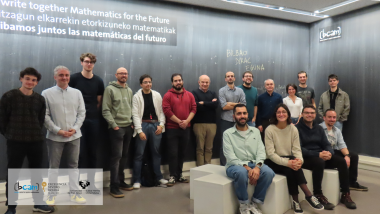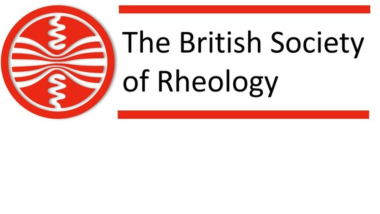Lorenzo Nagar will defend his thesis on Thursday, June 19th
The defence will take place at Salón de Grados of the Faculty of Science and Technology (UPV/EHU - Leioa)
Lorenzo Nagar is PhD Student at BCAM since January 2021 (former Research Technician 07/01/20 - 31/12/20) in the group "Modelling and Simulation in Life and Material Sciences". He obtained the La Caixa - INPhINIT 2020 fellowship joining the project "Optimising performance of Hamiltonian Monte Carlo (HMC) in molecular simulation and computational statistics", supervised by Prof. Akhmatskaya (MSLMS group) and Prof. Sanz-Serna (Universidad Carlo III de Madrid).
His research interest concerns the study of dynamical systems and the development and improvement of numerical methods for mathematical models. He is working on the improvement of the Hybrid/Hamiltonian Monte Carlo methods (HMC) and its Generalized version (GHMC) applied to molecular simulation and statistics, focusing on the adaptive multi-stage integration schemes.
Nagar obtained the Master's degree in Mathematics at Universitá degli Studi di Napoli "Federico II" in 2019 and the Bachelor's degree in Mathematics in 2016 at the same institution.
His thesis, titled Optimising performance of Hamiltonian Monte Carlo (HMC) in molecular simulation and computational statistics is under the supervision of Prof. Akhmatskaya (MSLMS group) and Prof. Sanz-Serna (Universidad Carlo III de Madrid).
On behalf of all members of BCAM, we would like to wish Lorenzo all the best for the future, professionally and personally.
Abstract
Technological advancements have led to increasingly complex systems, demanding sophisticated computational methods for understanding phenomena, making predictions, and informing decisions. In this context, the efficiency of Bayesian probabilistic modeling becomes a critical factor. Hamiltonian/Hybrid Monte Carlo (HMC) has emerged as a leading Markov Chain Monte Carlo (MCMC) method in both molecular simulations and computational statistics applications. By combining strengths of Metropolis-Hastings algorithm and Hamiltonian dynamics, HMC circumvents the inefficient random walk behavior of traditional MCMC methods, achieving faster convergence to stationarity without compromising computational tractability. Despite these benefits, sampling efficiency and computational performance of HMC heavily depend on a choice of a numerical integrator and intrinsic hyperparameters, often selected heuristically, through trial-and-error, or via costly optimization. This thesis addresses such limitations by introducing novel adaptive, automated, computationally efficient strategies for enhancing performance of HMC-based methods. In particular, we develop adaptive integration approaches that leverage multivariate Gaussian analysis and available HMC simulation data to detect the most favorable multi-stage splitting integrator for maximizing sampling efficiency of an HMC simulation at an arbitrary step size within the predicted dimensional stability interval. Our integration strategies are designed to be robust across applications in both molecular simulation and computational statistics, addressing the distinct challenges posed by each domain. In addition, for molecular simulation, we derived new multiple time-step multi-stage splitting integrators to offer an effective approach for integrating molecular systems with complex time-scale separations. Further, we introduce an adaptive, computationally inexpensive procedure for tuning hyperparameters of HMC and Generalized HMC (GHMC) in Bayesian inference applications. Given a probabilistic model and observed data, our tuning algorithm identifies optimal values for the integration step size, the number of integration steps per iteration, and the noise level in momentum refreshment for GHMC, along with optimum widths of their randomization intervals. Our novel methodologies are implemented in HaiCS and MultiHMC-GROMACS, in-house software packages developed at BCAM for Bayesian inference and molecular simulation, respectively, and can be easily adapted to any HMC-based package in these fields. Numerical experiments on benchmark statistical models, molecular systems, and real-world case studies demonstrate significant performance improvements (up to two orders of magnitude) in comparison with the state-of-the-art numerical integrators, alternative choices of HMC/GHMC hyperparameter settings, and optimized samplers.
Related news
Sobre el centro
BCAM se suma a Emakumeak Zientzian 2026 para visibilizar el talento femenino en la ciencia
La gente del BCAM




